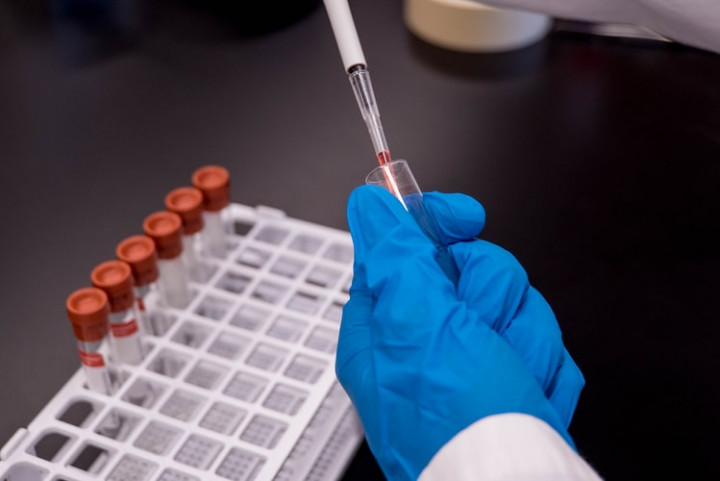
Taipei, June 10 (CNA) Taiwan's Food and Drug Administration (FDA) on Thursday made public its standards in granting emergency use authorizations (EUA) for locally developed COVID-19 vaccines, with one requirement being that the domestic vaccine candidates have to offer at least the same level of protection as that of the AstraZeneca (AZ) vaccine.
The standards, however, do not mention that the Taiwanese-made vaccines will have to conduct a third phase of clinical trials, something the internationally available and World Health Organization-approved vaccines, such as AstraZeneca, Moderna and Pfizer-BioNTech, have had to do before they were granted EUAs.
Wu Ming-mei, deputy head of the FDA's Medical Products Division, told CNA that the criteria mainly focus on evaluating a vaccine candidate' safety and efficacy before the FDA will consider issuing an EUA.
In terms of efficacy, Wu said the FDA decided to learn from the WHO's standards that focus on the level of immunogenicity of a potential COVID-19 vaccine.
Immunogenicity of a vaccine means the level of neutralizing antibodies one develops as a protection after taking a shot.
To determine the level of efficacy of a locally-developed vaccine candidate, Wu said the FDA had collected the data concerning the level of neutralizing antibodies 200 Taiwanese people developed after taking the AstraZeneca vaccine.
The level of neutralizing antibodies among the group of people who received the AZ vaccine will serve as a benchmark to compare with the people who took Taiwan-made vaccines, Wu said, adding the data will be used by the FDA to determine the Taiwanese vaccines' efficacy.
She said the FDA will grant domestic vaccine makers an EUA as long as people injected with the vaccines later develop the same or higher level of neutralizing antibodies in their bodies compared to that of the recipients of the AZ vaccine.
In terms of a vaccine's safety, Wu added that the FDA has asked Taiwan's vaccine manufacturers to recruit at least 3,000 participants for their phase 1 and phase 2 clinical trials.
The manufacturers are also required to conduct a follow-up for one month after a participant receives his or her last dose of vaccine to make sure there is no serious side effects.
They also must follow up on the health of vaccine trial volunteers for at least two months, and closely monitor them, especially people older than 65, to see if they suffer any side effects after taking the shots, she said.
Wu said the FDA standards are published after consulting with public health experts in the area following nearly a year of meetings.
The standards were released amid local experts' urge toward the FDA to soon make public the criteria so that local vaccine makers have a guideline to follow.
They also come amid concerns the Taiwanese vaccines will be approved without having to go through phase 3 clinical trials, something at least one company had mentioned would be hard to do in Taiwan.
Taiwan's government has signed contracts with two local companies, United Biomedical and Medigen Vaccine Biologics Corp., to purchase a total of 10 million COVID-19 vaccine doses.
Medigen announced at a press conference on Thursday its two-dose recombinant protein vaccine candidate just passed phase 2 clinical trials, with no severe side effects experienced by any of the participants.
The FDA will evaluate Medigen's trial results to see if they meet the safety and efficacy standards for obtaining an EUA for domestic COVID-19 vaccines.
If it meets the standards, it will seek an EUA for its vaccine candidate. That would increase the likelihood for the company's jab to become the first Taiwanese COVID-19 vaccine to reach the market.
United Biomedical's vaccine, meanwhile, is in the last stage of phase 2.
Taiwan's main opposition party Kuomintang on Thursday issued a statement saying that while it was glad to see the company reach a milestone, many people still have questions about the safety and efficacy of the vaccine.
"Before large scale promotions, the people in the country have a lot of questions and are waiting for answers. These include when Medigen will conduct phase 3 clinical trials, when it will obtain international certification, how its level of protection compares to other international mainstream vaccines, whether there are rare but existing risks when taking the vaccine, whether it has enough protection against new variants of the virus, and whether the price the government will pay Medigen for the vaccine will be reasonable, compared with what it pays for other vaccines," the KMT statement said.
"With the pandemic raging, the people in the country are anxious to get vaccines, but what they need are safe, effective and internationally-certified vaccines. The government must not rush the process. We hope it will address the above concerns. Only then will the people of this country feel safe and even proud about the Medigen vaccine," the KMT added.